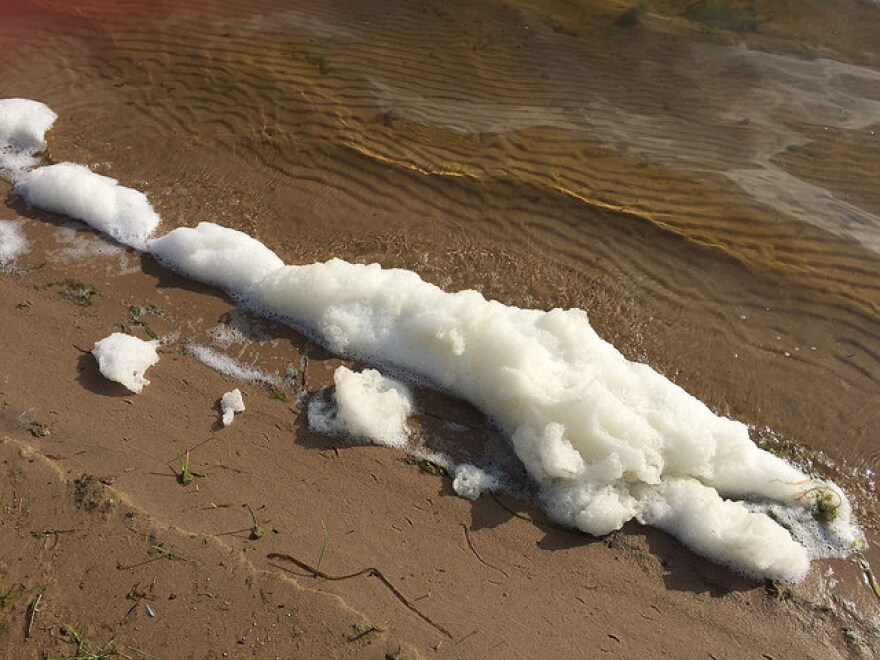A collection of Michigan environmental groups said Thursday that they had formed a coalition aimed at reducing the harmful effects of a group of chemicals called per- and polyfluoroalkyl substances, or PFAS.
The new group is called the Great Lakes PFAS Action Network. Environmental advocates said by working together, they will be able to push for increased scrutiny of PFAS. The chemicals have been common in firefighting foams and some household products, and they’ve been linked to cancer.
Tony Spaniola, who owns property near the old Wurtsmith Air Force Base in Oscoda where PFAS have been found in the well water there, is one of the members of the new network. He said PFAS are a chemical family so large that it needs a unified regulatory approach.
“We really shouldn’t be regulating PFAS on a one-off basis. With more than 7,000 chemicals in the class, and growing, it’s just backwards to take them one-by-one. We really need to regulate them as a class,” Spaniola said.

Sandy Wynn-Stelt joined the network from Belmont, where PFAS have been found in the drinking water. She said she'd like to expand the group’s reach to other states. “Our hope is that we can make this not only a state force, but a regional force, and then a national force to be protective of our water. I think water is going to be the next big issue, and we have a responsibility, because we’ve been given these lakes, to really take care of this,” said Wynn-Stelt.
Spaniola said recognizing commonalities across communities with PFAS contamination could lead to stronger federal rules around the chemicals.
“It’s very easy to take a look at a small community and say, ‘Oh, that’s too bad, they have problem there,’ but when it’s Oscoda, and it’s Belmont, and it’s Ann Arbor, and it’s Detroit, and it’s Dearborn and it’s Flint, it’s much, much more difficult for folks to brush us aside,” Spaniola said.



